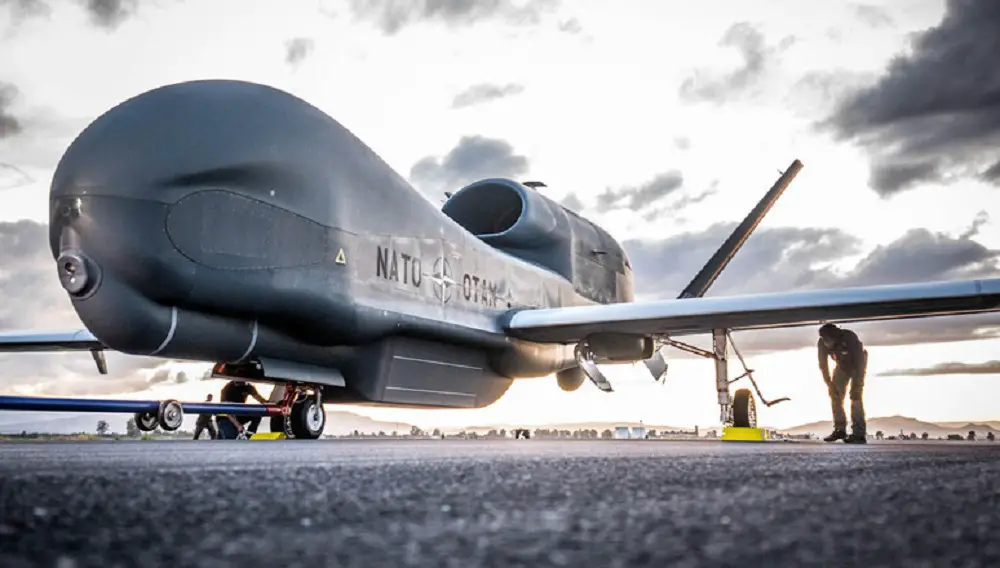In the wake of Russia’s invasion of Ukraine in early 2022, NATO’s Alliance Ground Surveillance Force (NAGSF) has been tirelessly executing missions that have amassed hundreds of flying hours along the eastern flank. Operating at high altitudes above the territories of NATO member countries and in international airspace, the NAGSF’s RQ-4D remotely piloted aircraft have gathered an invaluable trove of Intelligence, Surveillance, and Reconnaissance (ISR) data sets. This intelligence is now serving as the cornerstone for the alliance’s preparations in support of deterrence and defense. NAGSF’s operational tempo includes regularly conducting extended missions and responsibly utilizing international airspace. In the realm of military operations, sustaining continuous and comprehensive situational awareness is paramount.
“The NATO RQ-4D plays a pivotal role in enhancing the situational awareness of the Alliance. Our multinational team of experts at the AGS Main Operating Base at Sigonella meticulously processes these ISR products and consolidates them with data from various sources. The final products are then distributed to all 31 member nations of NATO, facilitating informed decisions for military operations aimed at safeguarding our Allies,” said Brigadier General Christoph Pliet, Deputy Chief of Staff Operations at Allied Air Command, Ramstein, where RQ-4D operations are orchestrated.
“NAGSF stands as a shining example of member nations effectively cooperating to preserve the territorial integrity of the Alliance. We remain steadfast in leveraging our unique and indispensable capabilities to deter adversaries and protect the Alliance,” said Brigadier General Andrew Clark, NAGSF Commander.

NAGSF serves as NATO’s intelligence hub, collecting, collating, exploiting, and disseminating critical products that bolster NATO’s ability to adapt to evolving security dynamics at the tactical, operational, and strategic levels. As the global security landscape evolves, NATO can draw strength and readiness from the vital intelligence collected by NAGSF’s RQ-4D drones. These flying sentinels have proven their worth in preserving peace and stability while standing as a testament to the collaborative strength of the Alliance. In the words of Brigadier General Clark, NAGSF will persist in harnessing its unique capabilities to defend and deter, ensuring the safety and security of NATO member nations.
The NATO-owned and -operated AGS core system enables the Alliance to perform persistent surveillance over wide areas from the high-altitude, long-endurance (HALE) aircraft, operating at considerable stand-off distances and in any weather or light condition. Using advanced radar sensors, these systems continuously detect and track moving objects throughout observed areas and provide radar imagery of areas of interest and stationary objects. The NATO AGS Force is based at the AGS Main Operating Base in Sigonella, Italy. The base hosts around 400 AGS personnel, in addition to a small number of AGS staff elements based at Allied Command Operations in Mons, Belgium and at Allied Air Command in Ramstein, Germany. The AGS Main Operating Base serves as a NATO Joint Intelligence, Surveillance and Reconnaissance (JISR) deployment base and as a data exploitation and training centre.















